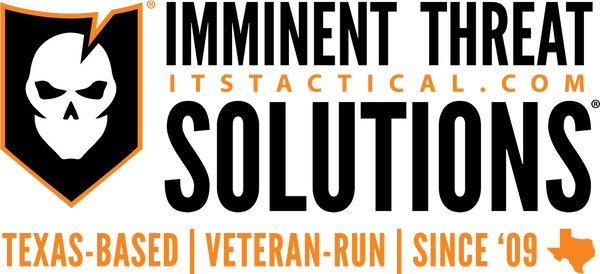
Get Your Trauma Priorities Straight: Mindset, Education, Then Tools
Share
When discussing medical gear, the most commonly asked questions are, “What should I put in my Medical Kit?” or, “What IFAK is the best?” In response to these questions, ask yourself the following four.
- What's your daily activity or mission?
- What's the environment in which you’ll be conducting that daily activity or mission?
- What's your current level of training?
- How many people are you immediately responsible for?
In answering these questions, it's important to be honest with yourself and understand how to prioritize between your mindset, education and tools.
Mindset
If you have to ask, “What items should I keep in my Medical Kit?” or “Which Individual First Aid Kit is the best?” The answer is “EDUCATION!” Yes, I’m yelling. When you ask me these questions you're telling me two things. First off, you don’t have a clue what you’re doing. Second, you probably don’t have a clue how to use a med kit even if you had one.
I'm not saying that you couldn't figure it out eventually, but let’s be really clear about things. Waiting until a family member is lying in the ditch with a car flipped upside-down on the side of the highway is not the time to start trying to figure out how to use your med kit. Waiting until your fellow Officer is bleeding out in an alley is not the time to start trying to “figure it out.” I commend you on your efforts and the mere fact that you at least have med gear. However, your priorities are flawed. Let’s focus on three things and remember them in this order: Mindset, Education and Tools.
Having the correct mindset creates the foundation for accomplishing a task. By becoming educated, we learn how to identify the problems associated with that task and create solutions. The tools are just there to make completing the task easier. Notice the order I said all that; mindset, education, tools. In every defensive tactician course I’ve attended (talking about firearms, edge weapons or hand-to-hand combatives,) the very first thing the instructor discusses is mindset.
Here are three things I want you to think about when building your own self-preservation foundation. In order to combat evil, you need to be educated in several subjects. I’m going to stay in my lane here and suggest you discuss which defensive techniques are best with a Subject Matter Expert (SME) in that arena. However, I'll discuss things from a field or tactical medical perspective.
Education
Recognize the fact that evil does exists and that accidents do happen. You value your life and the lives of those around you. You take responsibility for providing immediate safety and care for yourself and loved ones by not relying upon others to do so when evil strikes or accidents happen. Seek out the appropriate education and training so that when evil arrives or accidents happen, you're prepared and ready.
During your medical education and training, you’ll learn basic anatomy and physiology, how the body’s systems work together and which ones are more important than others. You’ll learn different techniques on how and when to appropriately identify and treat various injuries and illnesses. Although it may seem obvious, you’ll learn which tools are the most effective and efficient at assisting you in treating the sick or injured. Depending on the instructor, they may also offer their professional advice and opinions on different tools available.
Tools
Having the right tool for the right job does make life easier. Can you make a screwdriver hammer a nail through a board? Sure! Would an actual hammer be a much better solution? Absolutely! So then why not make life easier and use quality equipment and the right tool for the job. We’re only talking about life or death here.
When deciding on which tools are right for you, it's best not to base your decision on price or unsubstantiated reviews, but more so on the recommendations of Subject Matter Experts. Tools don't work without the knowledge and training to maximize them effectively and efficiently. Remember, you’ll be using these tools under stress in less than favorable conditions. It only makes sense to use the best tools available to help solve your problems and complete the task.
The takeaway is that you need to have the right mindset, the right education and the right tools, in that order. In our society of instant gratification and desire for quick results, it's easier to go online to some virtual warehouse and with a few quick clicks of the mouse, have your false "fix it now" security blanket tool on its way to your doorstep. A very wise mentor of mine in the 212 MASH once told me, “We treat our patient, not our equipment.”
Caleb Causey is the owner/director-of-training for Lone Star Medics; a field and tactical medical training company. He’s been a medic for over 15 years in field and tactical medicine, having served in the US Army as a Combat Medic with multiple deployments. He also has experience being assigned to a SWAT team as their medic during his time at a local Fire Department. Caleb teaches several different levels of field and tactical medicine for civilians, Law Enforcement and the Military.

